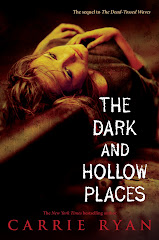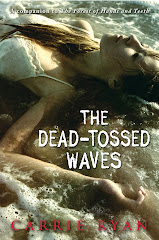Friday, May 21, 2010
What I learned about creating characters from Reality TV: it's about the motivation
Okay, I confess, I watch Reality TV. One of the shows I started watching recently is Tough Love on VH1. The basic premise is that Steve is a matchmaker and he's brought all these woman to a mansion to set them up on dates. There's no elimination and each week he works with the women to overcome some of their "issues" such as self-esteem, emotional barriers, etc.
The first season there was a woman named Taylor and she was a bona fide 100% gold-digger. She proclaimed that money didn't really matter to her that much but she decked herself out in expensive clothes from sunglasses to shoes. In one of the episodes, Steve set her up with a nice guy who had all the qualities Taylor claimed she was looking for in a man except for the money. They (and all the other girls with their setups) had the date at a gorgeous mansion with an amazing view and the twist was that the single and handsome "owner" of the house, someone clearly exceptionally wealthy, was an actor hired by Steve.
Unsurprisingly, within moments Taylor's ditched the guy she was set up with and is ALL OVER the "owner" of the house. She flirts, she says yes when he asks if she'd want to go away with him, blah blah blah. And at this point in the season as a viewer, we've seen her protest that it's not about the money and then pull this over and over again that we're done with her. As viewers, we've lost ALL sympathy for her and relegated her to gold-digging-reality-TV-fame-wanna-be-witch.
So Steve calls her up on the hot seat to lecture her about the way she behaved and she starts crying and says that he just can't understand. "Right," I'm thinking to myself, "no one can ever understand, blah blah blah." But then she starts talking about how she had a baby and she loved that child fiercely and she ran out of money and ultimately ended up having to give up her child for adoption because she couldn't afford to care for her. She started talking so passionately about how she would never in her life allow herself to be in that position again.
I was shocked. And suddenly, this character who was so flat and one-toned and who I hated... I started to understand. I totally understood her motivation and she made sense to me. This really hit home to me as a writer too because it didn't even take much for me to utterly change the way I approached her character -- just a little explanation about motivation.
It really made me think about how I approach characters (written and read). Sometimes, that little glimpse of each character's story can go a long way to making you understand decisions that might otherwise be hard to swallow. Understanding other people's motivations can be a very powerful thing!
The first season there was a woman named Taylor and she was a bona fide 100% gold-digger. She proclaimed that money didn't really matter to her that much but she decked herself out in expensive clothes from sunglasses to shoes. In one of the episodes, Steve set her up with a nice guy who had all the qualities Taylor claimed she was looking for in a man except for the money. They (and all the other girls with their setups) had the date at a gorgeous mansion with an amazing view and the twist was that the single and handsome "owner" of the house, someone clearly exceptionally wealthy, was an actor hired by Steve.
Unsurprisingly, within moments Taylor's ditched the guy she was set up with and is ALL OVER the "owner" of the house. She flirts, she says yes when he asks if she'd want to go away with him, blah blah blah. And at this point in the season as a viewer, we've seen her protest that it's not about the money and then pull this over and over again that we're done with her. As viewers, we've lost ALL sympathy for her and relegated her to gold-digging-reality-TV-fame-wanna-be-witch.
So Steve calls her up on the hot seat to lecture her about the way she behaved and she starts crying and says that he just can't understand. "Right," I'm thinking to myself, "no one can ever understand, blah blah blah." But then she starts talking about how she had a baby and she loved that child fiercely and she ran out of money and ultimately ended up having to give up her child for adoption because she couldn't afford to care for her. She started talking so passionately about how she would never in her life allow herself to be in that position again.
I was shocked. And suddenly, this character who was so flat and one-toned and who I hated... I started to understand. I totally understood her motivation and she made sense to me. This really hit home to me as a writer too because it didn't even take much for me to utterly change the way I approached her character -- just a little explanation about motivation.
It really made me think about how I approach characters (written and read). Sometimes, that little glimpse of each character's story can go a long way to making you understand decisions that might otherwise be hard to swallow. Understanding other people's motivations can be a very powerful thing!
Subscribe to:
Post Comments (Atom)
















4 comments:
I agree! I just finished a book that I nearly put down several times in the beginning. The writing was choppy, awkward, and somewhat florid. BUT... the characters were richly drawn, and plot and sub-plots were complex and interesting, woven to support and tweak each other, and most importantly, all of the characters - even the minor ones - clearly had huge backstory and motivation informing their actions. So I continued, and ultimately, I'm glad I did - even if the writing itself wasn't that great. Cheers.
Fabulous post Carrie, very insightful and interesting to read. I will be bookmarking this!
That's also the key to good villains. If you have a character doing some awful, awful things, but then slowly reveal why they are the way they are, and what their motivation is for what they're doing, they become sympathetic. And if you have the audience torn about hating the villain, then that's awesome.
It's like Vonnegut says -- there's no such thing as a truly evil person. At least, nobody really believes that they're doing evil -- everyone makes themselves out as the good guy, in their own minds. Deluded, yes. Evil? That's debatable.
Unless they're, you know, sociopaths. But characters with severe personality disorders don't count.
Excellent point Shaun -- villains should always be multi-dimensional. I've heard someone refer to that as the "save the cat" moment -- if you need to make a bad character have a good moment, have them save some sort of cute helpless animal :) You'd be surprised once you know that how often it happens.
Thanks Lynsey! So glad you found the post helpful!
I always find books like that really interesting, Anon -- I wonder what elements of a book make me put it down and which keep me going.
Post a Comment